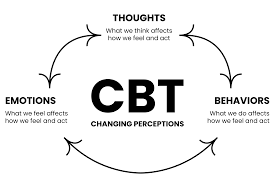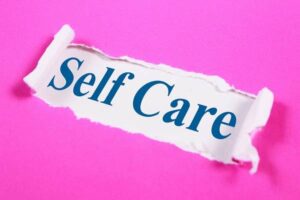If you are the parent of a teenager, there is a good chance that you have wondered if they could be struggling with OCD. It’s not always easy to tell, since OCD symptoms in teens can look different than they do in adults. In this blog post, we will discuss the signs and symptoms of OCD in teenagers, as well as what you can do to help them get the treatment they need.
Contents
What Is OCD In Teens? 
OCD is a mental disorder that affects millions of people around the world. OCD is characterized by intrusive thoughts, compulsions (repetitive behaviors), and/or avoidance behaviors. People with OCD often have certain rituals or routines that they feel compelled to do to relieve their anxiety.
OCD in teens is a serious mental illness that can cause a great deal of distress and disruption in their lives. It is important to be aware of the signs and symptoms of OCD in teens so that you can get them the help they need.
What Are The Symptoms And Their Effects?
There are many different symptoms of OCD in teens. Some common ones include:
Excessive worry about things 
The above statement is true. It’s one of the most significant symptoms of OCD in teens. It can make them worry excessively about things like school, friends, or family.
For example, a teen with OCD might be afraid of getting bad grades, even if they’re a straight-A student. They might worry that their friends will abandon them, even if they have great friends. Or they might be afraid of their parents getting divorced, even if their parents have a strong relationship.
This excessive worry can cause a lot of distress and make it hard for teens to function in their daily lives. For example, they might miss school because they’re too anxious to go, or they might avoid social activities because they’re afraid of what might happen.
Spending a lot of time performing rituals
Compulsions are repetitive behaviors that a person with OCD performs to try to relieve their anxiety or stress. These compulsions can take up a lot of time and can interfere with school, work, and other activities. For example, a teen with OCD might spend several hours every day washing their hands or cleaning their room. Or, they might have to keep count of everything they see during the day.
Compulsions are usually not enjoyable and can be very time-consuming. A person with OCD may feel like they have to perform their compulsions perfectly or else something bad will happen. This can cause a lot of anxiety and stress.
Avoiding certain places or situations
Many teens with OCD will avoid certain places or situations that may trigger their OCD thoughts or behaviors. For example, a teen with OCD who is afraid of germs may avoid going to school because they fear they will be exposed to bacteria.
A teen with OCD who is afraid of being harmed may avoid going outside because they fear they will be attacked. OCD can make teens feel like they are in danger no matter where they are or what they are doing. This can make it very difficult for them to go to certain places or attend certain situations.
Having intrusive thoughts, images, or impulses
OCD in teens can make them have intrusive and unwanted thoughts, images, or impulses that cause a great deal of distress. This symptom is often referred to as “intrusive thoughts.”
Intrusive thoughts can be about anything that might cause harm, including harm to oneself or others. They can also be about topics that are considered taboo, such as sex, violence, or death. In some cases, the thoughts may be so distressing that the teen avoids situations that might trigger them.
For example, a teen with OCD may avoid going to school if they are afraid of having intrusive thoughts about harming their classmates.
Spending a lot of time thinking about OCD
OCD can cause teens to spend a lot of time thinking about their obsessions or engaging in compulsions. For example, a teen with OCD might spend hours every day thinking about their fear of germs and dirt. They might wash their hands over and over again, or avoid touching door handles.
This can take up a lot of time and make it difficult for the teen to focus on other things, like school or hobbies. The wastage of time caused by OCD can lead to academic problems and conflict with family members or friends. For example, a teen with OCD might miss a lot of schools because they’re spending so much time on their compulsions.
The feeling of embarrassment or shame 
OCD in teens can be extremely embarrassing and shameful for them. It can make them feel like they are always being watched and judged, and that they can never do anything right. This can make them feel embarrassed and ashamed of themselves.
For example, if they are constantly checking their phone to make sure they haven’t missed any calls or texts, they may feel like they are the only one doing this and that everyone else is normal. This can lead to them feeling embarrassed and ashamed of themselves.
OCD can also make them feel like they are not good enough and that they will never be able to meet the standards that they set for themselves. This can lead to a lot of shame and self-loathing.
How Can Therapies Help?
Cognitive Behavioral Therapy 
CBT is an effective treatment for OCD that helps teens learn how to manage and overcome their OCD symptoms. It teaches teens how to identify and challenge the negative thoughts and beliefs that contribute to their OCD.
CBT also helps teens learn how to develop healthy coping and problem-solving skills. With CBT, most teens with OCD can learn how to control their symptoms and live healthy, productive lives.
For example, a teen with OCD might learn how to challenge the thought that he is responsible for preventing a natural disaster. He might also learn how to develop healthy coping skills, such as relaxation techniques and problem-solving strategies. With CBT, he can learn how to control his OCD symptoms and live a healthy and productive life.
Dialectical Behavioral Therapy
DBT helps teens manage and overcome OCD by teaching them how to identify and change their thinking patterns, regulate their emotions, and develop healthy coping mechanisms. It also helps teens learn how to communicate effectively and build positive relationships. These skills are essential for managing and overcoming OCD. The process involves four key components:
- Mindfulness: learning to focus on the present moment and accepting thoughts and feelings without judgment
- Distress tolerance: learning how to cope with difficult emotions and situations
- Emotion regulation: learning how to identify and manage emotions
- Interpersonal effectiveness: learning how to communicate effectively and build positive relationships.
DBT is an effective treatment for OCD because it helps teens to develop the skills they need to manage their symptoms and live a fulfilling life.
Exposure And Response Prevention
ERP is a type of cognitive-behavioral therapy that helps people manage and overcome OCD. It involves gradually exposing yourself to the things that trigger your OCD symptoms, without engaging in the compulsive behaviors that typically relieve anxiety.
ERP helps teens with OCD face their fears and learn that they can tolerate the anxiety and discomfort that comes with exposure to their triggers. Over time, ERP can help reduce the frequency and intensity of OCD symptoms and can improve quality of life.
Interpersonal Psychotherapy
IPT is an effective psychological treatment for a wide range of mental health problems, including OCD. It focuses on the relationships between an individual and their social environment. IPT teaches skills to help manage and overcome OCD symptoms by improving communication, managing conflict, and resolving grief.
This therapy is particularly effective in treating OCD in teens. For example, the therapist will help the teen to develop a better understanding of their OCD symptoms and how they can manage them. The therapist will also work with the teen to identify any negative thoughts or beliefs that may be contributing to their OCD symptoms.
Family Therapy
OCD can be extremely isolating for sufferers, but family therapy provides a supportive environment in which to explore the condition and its effects. In family therapy, teens with OCD can learn to communicate openly about their condition and its symptoms and develop coping mechanisms to deal with intrusive thoughts and compulsions.
Family therapy can also help to educate parents and other family members about OCD, and how best to support their teen through the condition. Through therapy, parents can learn to identify and manage their stress levels, which can in turn help to reduce the stress levels of their teen with OCD.
Group Therapy
Group therapy can provide a space for teens with OCD to talk openly about their thoughts and feelings related to their obsessions and compulsions. The therapist can help the group members to understand their OCD and learn new ways to manage and overcome their symptoms.
Group therapy can also provide support and encouragement from peers who are dealing with similar issues. For example, group members can offer each other helpful tips and coping strategies that they have learned.
Additionally, group therapy can help teens to feel less alone in their struggles with OCD. Seeing that other people are dealing with similar issues can be very reassuring and can help reduce feelings of isolation and shame.
How Can Medications Help? 
There are many different types of medications that can be used to help manage and overcome OCD in teens. The most common type of medication is antidepressants. Antidepressants are typically used to help manage the symptoms of OCD by helping to balance the chemicals in the brain.
Other types of medications that may be used to help manage OCD symptoms in teens include anti-anxiety medications, mood stabilizers, and antipsychotic medications.
Some examples of medications for OCD in teens include :
- Selective serotonin reuptake inhibitors (SSRIs): SSRIs are a type of antidepressant that helps to increase levels of serotonin in the brain. serotonin is a chemical that helps to regulate mood and behavior.
- Serotonin and norepinephrine reuptake inhibitors (SNRIs): SNRIs are a type of antidepressant that helps to increase levels of both serotonin and norepinephrine in the brain.
- Tricyclic antidepressants (TCAs): TCAs are a type of antidepressant that helps to balance the levels of norepinephrine and serotonin in the brain.
- Monoamine oxidase inhibitors (MAOIs): MAOIs are a type of antidepressant that helps to increase the levels of norepinephrine and serotonin in the brain.
How Can Self-Care Strategies Help? 
Several self-care strategies may help manage and overcome OCD in teens. One of the most important things that can be done is to educate yourself about the condition. This means learning about what OCD is, what the symptoms are, and how it can be treated. It is also important to understand that OCD is a real medical condition and it is not something that you can just ignore or wish away.
Another self-care strategy that can be helpful is to develop a support system. This could involve family members, friends, or even a support group for people with OCD. Having people to talk to who understand what you are going through can be a huge help. It can also be helpful to connect with others who have OCD so that you can share tips and tricks for dealing with the condition.
Finally, it is important to take care of yourself both physically and mentally. This means eating a healthy diet, getting enough exercise, and getting enough sleep. It is also important to find ways to relax and de-stress. This could involve yoga, meditation, or even just spending time in nature. Taking care of yourself will not only help you manage your OCD symptoms but it will also help you feel better overall.
Conclusion
OCD symptoms in teens are not different from OCD symptoms in adults. The main difference is that teens tend to be more secretive about their OCD and are less likely to seek help. This mostly happens because of the fear of being rejected or misunderstood.
Moreover, this age is generally accompanied by a lot of changes and OCD can make it even harder to cope. That is why it is so important to be understanding and supportive of somebody who is going through this. Try to create a safe environment for them where they can openly talk about their OCD and don’t hesitate to get professional help if needed.
Help your teenage child by remaining supportive and understanding. Love them for who they are and help them get the professional help needed to cope with their OCD. Most importantly, be there for them every step of the way.
Professional Guidance is the first step to moving toward your healing journey. You can try reaching Therapy Mantra to seek expert help in the comfort of your own home. Our therapists will help you get a solution to manage and overcome your problem. You can book your online therapy and talk directly to your assigned mentor. You may also download our free OCD treatment app on Android or iOS.








